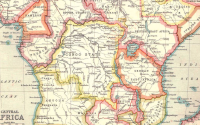By Kazumasa Koike
NEW DELHI, April 19, Kyodo - Award-winning Indian author and activist Arundathi Roy has always been a rebel. But over the years she has become a rebel with several causes. Her first novel, ''The God of Small Things,'' won her Britain's prestigious Booker Prize in 1997 and put Indian writing firmly on the world map. Yet within a year she turned from a celebrity author into an activist, leading some to call her a budding Indian Pablo Neruda. But it is her long, powerful political essays against nuclear bombs, big dams, religious fundamentalism, globalization and most recently against the U.S.-led attack on Afghanistan that has made her one of the most controversial writers of recent times. The 41-year-old Roy spoke to Kyodo News in her Delhi home. -- Did you expect this prolonged war in Afghanistan? U.S. President George W. Bush has even coined another term for the operation. Did I expect this? Well I think it must be very embarrassing for George Bush after all the things he said, how ''We will smoke (Osama bin Laden) out of his hole.'' You know, all the rhetoric of war. I, in one of my essays, had said that he is burning the haystack -- the best way to find the needle. Obviously, the U.S has devastated this country and hasn't found the people -- not only Osama bin Laden or Mullah Omar, but almost no main Taliban leader has been caught. Some people have been caught, but then the al-Qaida is all over the world. What Bush has done is increase the anger in people and also increased his own frustrations. What is happening is a new kind of war. One may have the nuclear weapons, the B-62 bombers and so on. But the people of the world have their anger, and it's now living that they fear more than dying. You have pushed people to that stage where they don't mind dying, they don't mind using their own bodies as a bomb. It's almost as if some basic biological instinct has been crossed. When human beings cross the line between living and dying, then the rules change and then what makes you powerful and what doesn't make you powerful changes. Then despite all the missiles, radars and with all the surveillance etc...not only could you not stop that, you can't even stop your own people from being terrified about what will happen next. So I think that the problem here is that the leaders of the world have to understand that we are in a different place now...the world is a different place and what power means, what power doesn't mean, is different now. And Bush is behaving in the worst way -- meaning I am not just talking about political strategy, but about understanding the psychology of the world. He is doing it in the worst way. Now you are making more and more people angry because whether it is Iraq, Iran or Somalia you are not trying to understand the issue, not trying to understand that you can't play these games. I think you are not addressing the anger, you are just putting it down and you are not understanding that it will explode in some way or the other because you don't believe in social justice, you believe in supremacy. -- So what you are saying is that the U.S.-led war against terrorism has made the world a more dangerous place to live in? Definitely, definitely. -- But in Afghanistan, people now seem to be better off than during the Taliban regime, so the U.S bombing of Afghanistan has done some good, hasn't it? See, the thing is that if you say that ''I am going to bomb this country because I want to catch Osama bin Laden'' and you don't catch him, then you say ''Oh!'' But this was actually a feminist cause and I wanted the women get out of the burqa. If you want to do that you can do that without bombing, it is possible. Actually, who is happy in Afghanistan? I want to know. Perhaps in Kabul a few people are happy, but truly the situation in Afghanistan is terrible now. No one can go from here to there without being watched. The whole security situation is terrible. You can't just have the BBC go and film some woman putting lipstick and say, ''Oh! Now everybody's happy.'' That's not the way things work -- ''We will bomb you, then we will give you millions of dollars, or, ''We will bomb you, and throw food at you.'' -- You've said Osama bin Laden and Bush are twins who are blurring into one another and gradually becoming interchangeable. I wasn't talking about Bush and Osama bin Laden as individual people. I said, ''What is Osama bin Laden?'' I am just saying that one is a product of the wasted world caused by the other, it was nothing personal. -- But that kind of logic can be seen anywhere in our society. Can we decide on a situation based on this? And how can we avoid the kind of reasoning Bush and bin Laden talk about? I think, fundamentally, that logic is linked to the idea of the nation state...I am an American, you are a Japanese, etc. I don't believe in that. I don't think like that. Maybe you need the nation state as an administrative entity, but certainly not as cultural nationalism. From the Greek times, in order to make yourself powerful within your own country, the best thing to do is to attack someone else...Whether Bush does it or whether Vajpayee does it, whether Musharraf does it -- it is all the same process. These are also linked to your own elections and your own power. It's not unlinked to Enron. What Bush is doing is not unlinked to the fact that he knew that Enron was breaking up and he had to secure his position and if that war against Afghanistan had not happened, what kind of situation Bush would have been in now? He didn't even win the election! (laughs) And then to be involved in this scandal, which is huge. As I keep saying, along with the twin towers came down the twin myths of free speech and the free market. Suddenly, nobody believed in the free market, suddenly the state had to bail out the airlines, suddenly the state had to intervene. But if it is Argentina, or if it is Thailand or if it's India, then it doesn't matter if it's collapsing, the state shouldn't intervene because we (the U.S.) believe in the free market. -- Bush's actions in Afghanistan have destroyed the Taliban and brought freedom to the country. What do you think? The thing that I keep saying is the U.S -led coalition may have destroyed the Taliban in Afghanistan, but they have moved the Taliban to the White House and to India. The whole culture of Talibanization is alive and well. You're destroying civil liberties in the name of protecting democracy. In India, the U.S wants to make an alliance with this government that wants to build temples and wants to rewrite history. It's just that the Taliban is not sophisticated enough to do it in the way that the BJP (the right-wing nationalist party that is the main party in the ruling bloc) does it. It's more dangerous because they know what they are doing, rewriting history books and changing texts. And people are not even attacking the BJP for it because they are doing it in such a sophisticated way. -- How do you explain the kind of fanaticism the world over especially among educated youth who are fighting for a religious cause? That's the main concern for me. The fact is that corporate globalization and the abasement that goes on with that goes hand in hand with religious fundamentalism. So it's not a coincidence that Bal Thackeray (a Hindu fundamentalist leader whose party was in power when Enron set up shop in the Indian state of Maharashtra)is the guy who signed the Enron contract, and Bal Thackerey is also the guy who is saying that he will kill anybody who buys a Valentine's card. The two things are the two faces of the same coin. -- Bush changed the name of the Afghan operation from Infinite Justice to Enduring Freedom. What do you think about that? (Laughs aloud) There's a joke...about this man called Arthur Stinks who went to court and said, ''I don't like my name and I want to change my name. I don't like the sound of Arthur Stinks.'' The judge said, ''All right, what would you like your name to be changed to? I can quite understand that you don't like it.'' And he said, ''To John Stinks.'' (laughs) -- You've said nuclear weapons are the enemy of mankind, and countries continue to possess them. How would you react to this kind of logic about violence? I keep saying that any country or any government that says that they are against terrorism must show themselves to be open to nonviolent, peaceful, reasonable dissent. Like in India, there are all these nonviolent movements. The government doesn't look at them, it doesn't want to hear them, it just wants to beat them up and put them into jails. Then what are people supposed to do if not become violent? Because what has happened in America is a very strange logic. If you are saying that the bombing of Afghanistan has helped the people of Afghanistan, that means that there's going to be an act of terrorism to attract attention and the minute you attract attention, people have to be careful of how they treat you. Bush and bin Laden have the same attitude towards violence, they have the same attitude towards taking human lives. If you say that four people are going to fly into a building and kill 3,000 people or if you say that I am going to bomb your water supply or I am going to put sanctions so that one million people die, which is the worse thing? I don't know...I am just saying that one is the weapon of the weak person who can only do that and the other is the weapon of the strong. That Saddam Hussein is a monster. No one doubts that he is a monster. But when he was doing the most monstrous things he was the best friend of America and the best friend of England. So now they have no-fly zones over the north of Iraq because Saddam Hussein is killing the Kurds. But the Turks, who are America's friends, are allowed to kill the Kurds. What is the logic? -- You mentioned nonviolence. Do you fear violence in the grassroots Indian anti-dam movement you are involved in? It's very complicated, this thing of taking to violence. If you exclude people from a political process, the violence will happen like the Maoist rebellion in some Indian states. It's not that the (anti-dam group) Narmada Bachao Andolan tribals will suddenly become terrorists. That's not it. What I am saying is that you keep on putting pressure on people, you keep on pushing them. But beyond a point you just can't keep pushing somebody to the wall. You have to respect nonviolence. You have to respect that for 16 years, there has been this fantastic, beautiful nonviolent movement which has got a completely reasonable case. It's not that they are talking rubbish. Even the Supreme Court judge sort of had a dissenting judgment where he agreed with them. If you are going to say that I am not going to listen to you unless Veerappan (India's most wanted forest brigand) comes and kidnaps somebody or unless people start exploding bombs in Kashmir, you don't listen. You have no time for them at all. You are playing with them...That is very dangerous because fundamentally, the world must learn to respect nonviolence. No, nonviolence doesn't mean passivity, I am talking about nonviolent resistance. -- How do you define civilization? I can't define civilization. But suppose we look at the history of Afghanistan. There has been a lot of brutality there. Even the Taliban and the Northern Alliance, they were killing each other, they were burning each other, but they were doing it personally, this man with that man....and that is called savagery. Then you look at civilized countries, whether it is America, whether it's England, or whether it's Russia, and your entire population is living what they think of is a civilized life. But you just go and drop a nuclear bomb on Hiroshima, and only one man did that, killing hundreds of thousands. But that country doesn't participate in that crime. People don't feel responsible for it because they think they are civilized. (MORE)
http://home.kyodo.co.jp/all/printer_friendly.jsp?an=20020420004






